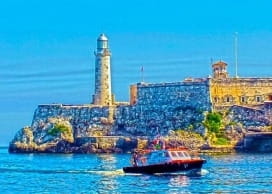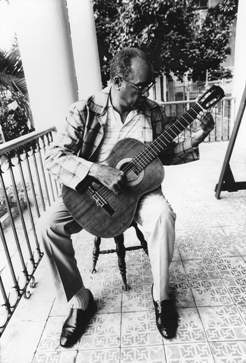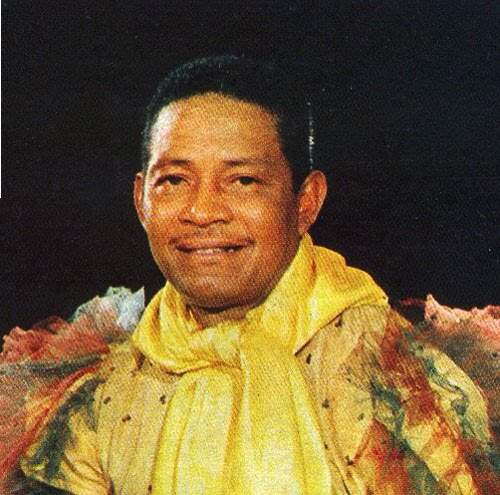
Havana ephemeris. August 3rd.
1919. Juan Emilio Friguls Ferrer is born in Havana. He was an outstanding journalist with extensive experience in newspapers, radio stations and television channels. He was a reporter par excellence.

He started working in Information, then in Bohemia.
After the triumph of the Revolution he works at Radio Reloj and collaborates in numerous publications. He was Dean of the Provincial College of Journalists between 1959 and 1960.
He was nominated for the Prince of Asturias Award and several awards were also conferred on him in Cuba, including the Distinction for National Culture, the Raúl Gómez García Distinction, the Alejo Carpentier Medal, the replica of Máximo Gómez's Machete, the National Journalism Award and the National Radio Award.
He passed away in Havana on August 8, 2007.
1921. José Antonio Rojas is born in Havana. He became known as Ñico Rojas

He came to occupy a prominent place in the history of Cuban popular music for his work as a composer and guitarist. Along with César Portillo de la Luz, José Antonio Méndez, Ángel Díaz, Rosendo Ruiz Quevedo and others, he contributed to the development in our country of the movement known as feeling, which was born in the 1940s in the last century. He evidenced a great capacity for improvisation as a result of his prodigious creative imagination.
According to some specialists, he had a way of composing and interpreting with singular virtuosity.
Thanks to his originality, a way of composing instrumental music for guitar emerged in Cuba in 1950, hitherto unprecedented in that style. His pieces for guitar have been used as study material in music conservatories.
For his work he received various distinctions, among others, the Annual Prize of the Union of Writers and Artists of Cuba, the Butterfly Prize, the Distinction for National Culture, the Raúl Gómez García Order and the Armando Mestre Order.
He passed away on November 22, 2008.
1923. Carlos Embale is born in the Jesús María neighborhood in Havana. He became a prestigious singer. He became a kind of legend in Cuban popular music as an interpreter essentially of son and guaguancó, although he also ventured into other genres.

He was characterized by having a high-pitched, wide-ranging voice.
He dominated the interpretation of various dance genres of Cuban music, such as bolero, son, guaracha and especially rumba.
He started in the artistic work in the thirties, in the last century, when he appeared in the Supreme Court of Art of the CMQ radio station, a radio program aimed at giving amateur artists from our country.
Afterwards, he first worked with the Boloña and Bolero septets and then was a singer with the Fantasia and Neno González orchestras.
Between 1946 and 1954 he was a member of Miguel Matamoros' ensemble. Some time later he created and led a group of guaguancó that identified with his name.
In 1976 he became part of the National Septet of Ignacio Piñeiro, in which he remained until the final stage of his fruitful career in music.
With the Embale National Septet he continued to reap successes and in his voice several musical creations became popular, among which was one identified as "The end will not arrive"
He passed away in Havana on March 12, 1998.
1993. An act for the 5th anniversary of the Pastors for Peace Foundation is held at the Manuel Ascunce Domenech Theater in Ciudad Libertad in Havana.

Commander-in-Chief Fidel Castro spoke at the ceremony, emphasizing: "If one day future generations of North Americans were ashamed, as they surely will be, that the authorities of their country have imposed on a small country, a small nation, as that of Cuba, such cruel measures and such great hostility, surely those same generations of North Americans will feel proud of what the Pastors for Peace have done and what the United States-Cuba Friendship Caravan has done, because they are saving the sense of justice of their country, they are saving the honor of their country”.
He also specified: “When we see people like you, who defy lies, who defy all obstacles, who defy all difficulties, our admiration multiplies and they remind us of those who were their predecessors and no one can say that they are few: in the In the first caravan more than 100 came, in the second caravan 300, and if it continues to grow like this, like a snowball, maybe one day 3,000, or 30,000, or 300,000 North Americans will come to our country.”